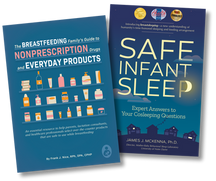Exploring Primal Connections: Orangutans and Insights on Breastfeeding for World Breastfeeding Week
- Jul 30, 2024
- 3 min read

As World Breastfeeding Week approaches, it’s an ideal moment to delve into the intriguing world of breastfeeding by drawing parallels between human practices and those of our primate relatives, the orangutans. In Mammals Unlocked, a newer book by Dia L. Michels, she asks a thought-provoking question: How long do orangutan babies nurse before they’re fully weaned? One year? Three years? The answer may surprise you—orangutans, those remarkable red-furred creatures inhabiting the rainforests of Borneo and Sumatra, nurture their young for an impressive seven years!

This isn’t merely a matter of convenience for orangutans; it’s crucial for their offspring’s survival and development. By imparting essential nutrients and vital jungle life skills, this extended breastfeeding period benefits both mother and child.
In stark contrast, human societies often stigmatize breastfeeding beyond infancy. A lack of maternity leave, private places to nurse, and routine separation of mother and baby feed into this problem. Despite dramatic and well-documented health benefits from exclusive breastfeeding, such as enhanced immunity, superior nutrition, and strengthened mother-child bonds, nursing in public or past socially accepted times can still provoke stares and criticism in many places.

Breastfeeding stands as a cornerstone of mammalian biology, finely tuned by evolution to secure the health and flourishing of our young. Orangutans showcase this with their prolonged nursing periods, underscoring nature’s blueprint for nurturing offspring through breastfeeding. However, in humans, while most infants receive some breastmilk, exclusive breastfeeding or its continuation often falls short of expectations. The CDC reports that sixty percent of mothers do not breastfeed as long as planned, influenced by factors such as unsupportive work policies, inadequate parental leave, cultural norms, lack of family support, and hospital practices.

These statistics highlight the delicate relationship between biology and contemporary taboos in supporting our youngest members. Understanding these dynamics is crucial for aiding mothers and infants on their breastfeeding journey. In the orangutan world, breastfeeding until age seven is the norm. So why do humans often snub this natural practice, subtly discouraging breastfeeding beyond the first year and leading many women to stop before they feel ready?
The American Academy of Family Physicians (AAFP) informs us that humans naturally wean between 2 and 7 years of age, with most children stopping between 2 and 4. Regarding breastfeeding beyond this typical range, which aligns more with innate practices, the AAFP emphasizes that extended breastfeeding poses no harm to parents or children. They explain that, in fact, there are numerous benefits associated with it.
Exploring these advantages, the World Health Organization emphasizes the critical role of breastfeeding, pointing out its impact on reducing infant mortality, providing essential antibodies, and offering numerous other benefits for mothers and infants alike. Both WHO and the American Academy of Pediatrics (AAP) recommend exclusive breastfeeding for the first six months and continued nursing until the baby is two years old or beyond if desired.
According to the CDC Breastfeeding Report Card, in the U.S. today, most (83.2%) newborns start out receiving some breastmilk, but the number falls rapidly. At six months, 55.8% of infants consume some breastmilk, but the percentage drops to 24.9% for babies drinking breastmilk exclusively. It is the rare child in the U.S. who meets the WHO and AAP infant feeding recommendations.
World Breastfeeding Week reminds us to celebrate and normalize breastfeeding as a natural part of early childhood. It’s time to support moms so they can breastfeed without judgment.

Ultimately, while orangutans exemplify the biological significance of extended breastfeeding, humans frequently wrestle with societal norms that clash with these natural rhythms. It's time to delve into why breastfeeding stigmas remain so persistent and to fully recognize and celebrate its many benefits. Let’s embrace this natural practice with open arms, honoring its diversity and the deep, meaningful connection it nurtures between mother and child!
Platypus Media, and their imprint, Science Naturally, offer resources such as Mammals Unlocked to educate and pioneer conversations and advocacy surrounding breastfeeding. For more information, check out these additional titles below!:
For readers age 0-4
For readers age 4-7
For readers age 7-10
For readers age 8-12 (or 4-8 as a Read-a-Loud)
The Breastfeeding Family's Guide to Nonprescription Drugs and Everyday Products
For parents and parenting professionals
For parents and parenting professionals
For parents and parenting professionals














Comments